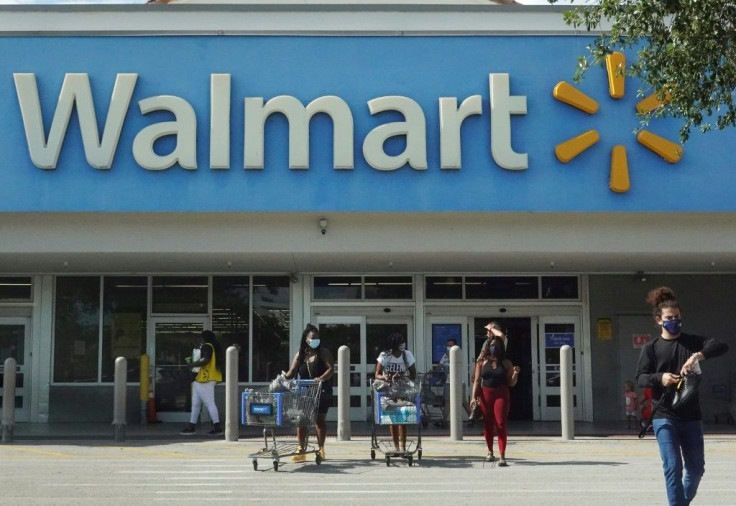US Retail Sales Fall Amid Delta Variant Worries, Supply Chain Woes
Americans spent less on autos, but more at restaurants and bars in July, while Walmart shoppers returned to stores, buoyed by widespread Covid-19 vaccinations.
The countervailing trends apparent in the latest batch of government and corporate reports Tuesday, showed the difficulty in predicting the path for the world's largest economy and the complicated calculations facing the Federal Reserve as it ponders when to pull back on its stimulus efforts.
The trove of data included weaker-than-expected July retail sales but better Walmart earnings, suggesting US consumers remain on solid footing, but with a less euphoric outlook compared with earlier in the summer.
Government stimulus checks and child tax credits along with widening vaccine access in recent months had lifted hopes the US economy was finally on the cusp of exiting the pandemic, but the rise of the Delta variant and fading impact of aid payments are taking the edge off spending.
"Consumers are a bit fearful again as we approach another possible wave of COVID-19 infections, but they've learned to live with the virus and shopping continues," said Jack Kleinhenz, chief economist for the National Retail Federation, which still expects record sales in 2021.
"The Delta variant could impact local markets, especially where vaccination rates are low, but doesn't appear likely to show up in the national data," he added in a news release.
Analysts also pointed to shipping snags and other supply chain issues, as well as rising inflation as challenges confronting retailers, amid the precipitous drop in consumer confidence.
US retail sales fell a surprising 1.1 percent compared to June, a far bigger drop than analysts were expecting, as auto purchases collapsed 4.3 percent, the Commerce Department reported.
Restaurants and bars continued to see an upswing in business as customers ventured out despite increasing infections, while rising prices at the pump boosted sales at gasoline stations.
The steep decline in car sales comes as new auto inventories remain extremely low due to a global shortage of semiconductors that has cut production.
Businesses face global shipping constraints.
Eugene Seroka, executive director of the Port of Los Angeles, said on CNBC Monday that 29 ships were waiting offshore at Los Angeles-area ports, with another 20 on the way.

Walmart executives said the chain's merchants are adding lead time to orders and chartering vessels just for Walmart goods. Still, out-of-stocks are running "above normal given strong sales and supply constraints," said Chief Financial Officer Brett Biggs.
The giant US retailer lifted its outlook for full-year sales and profits amid strong grocery sales and brisk demand in the "back-to-school" season.
Executives also noted an uptick in foot traffic in stores in the most recent three months as more consumers have been vaccinated.
But the rise of the Delta variant remains a concern, which prompted the retailer to reinstitute a mask mandate for employees in areas with high infection rates.
Walmart revenues rose 2.4 percent to $141 billion in the quarter, although profits dropped 34 percent to $4.3 billion compared with the comparable quarter of 2020.
Building supplies have been hit particularly hard by supply bottlenecks and price spikes
Home Depot reported shortfalls in some key inventory items and declined to offer a full-year earnings forecast, due to what Chief Financial Officer Richard McPhail called a "significant amount of uncertainty."
The home-improvement company's profits rose 11 percent to $4.8 billion following.
Analysts said moderating sales gains were unsurprising given the huge increases in the prior months.
Neil Saunders, an analyst at GlobalData, predicted the outsized increases in earlier months "will become a thing of the past," while inventory and staffing "will be the real pressure points."
Economist Mickey Levy at Berenberg Capital Markets, said the moderation in US retail sales was "inevitable," he cautioned that third-quarter consumption could lag expectations, weighing on economic growth.
"A big question is the extent to which the Delta variant and higher inflation will weigh on sales, and for how long," Levy said in an analysis.
© Copyright AFP {{Year}}. All rights reserved.





















